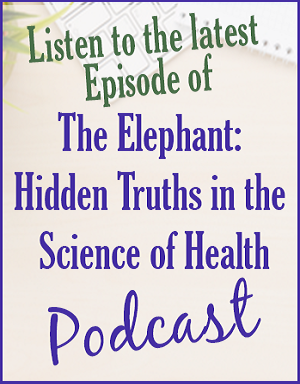Larry A. Law
Casein—A1 and A2
On pages 137-139 of my book, There's An Elephant in the Room—Exposing Hidden Truths in the Science of Health, I explain what constitutes A1 and A2 casein. Most milking cows (primarily the black and white Holstein) produce A1 casein in their milk. The older breeds (like brown Jersey cows) produce A2. Human digestive enzymes, which cut up and break down proteins, interact with A1 casein and form an inflammatory compound called beta-casomorphin (BCM-7). A2 casein is slightly different in composition and cannot be reduced to BCM-7. BCM-7 (like morphine) can create a 'feel good' response when you consume it and is likely to encourage a mild form of addiction while leaving your body in an inflammatory state. The pain from inflammation is masked by the BCM-7 compound, so you are unaware of the detrimental effects until they show up in seemingly unrelated conditions like lupus or diabetes. According to a study published in the journal Nutrition and Diabetes, A1 milk "is a primary causal trigger of type 1 diabetes." Researchers concluded that removing A1 milk from the diet "may profoundly affect type 1 diabetes incidence."
Switching to A2 Milk
A study published in the International Journal of Environmental Research and Public Health reported that the digestion of A2 casein resulted in many benefits and none of the harms associated with A1. BCM-7 produced in A1 milk lowers glutathione levels in the human gastrointestinal tract and in nerve cells. Glutathione is a powerful antioxidant and plays a major role in immune system response and disease progression. Consumption of A2 casein milk caused increases in this antioxidant. In addition, A2 milk significantly reduced gastrointestinal symptoms in preschoolers with milk intolerance and, as a side effect, resulted in improved cognitive ability. Because of increases in short-chain fatty acids levels, improved colon health resulted in better "fermentation products of gut microbiota with reported anti-inflammatory properties, able to amplify colonic cell function."
Bottom Line
A2 milk and cheese from cows, goats and sheep is becoming easier to find in the grocery stores. Make sure the products purchased say A2/A2 or 100% A2 so that there is no A1 milk hidden in the product. If you have issues with dairy, it might just be the ticket to keeping your cake and eating it too (with a small glass of A2 milk!).
1 Comment
Dave J
6/6/2023 10:39:23 am
Thanks Larry. I have celiac disease, and have consistent GI problems with A1 dairy. When we switched to raw, local, A2 from Brown Swiss cows, I can drink multiple glasses without issue. And they're now carrying A2 cow cheese at Costco. We've switched entirely over to A2.
Reply
Leave a Reply. |
BlogArchives
July 2024
Categories
All
|
© Angie's Option GRM. All rights reserved.








 RSS Feed
RSS Feed

